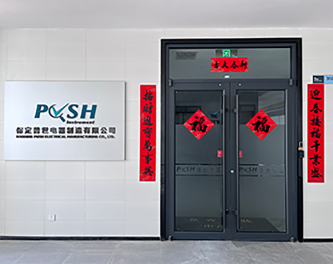 English
English



-
 Afrikaans
Afrikaans -
 Albanian
Albanian -
 Amharic
Amharic -
 Arabic
Arabic -
 Armenian
Armenian -
 Azerbaijani
Azerbaijani -
 Basque
Basque -
 Belarusian
Belarusian -
 Bengali
Bengali -
 Bosnian
Bosnian -
 Bulgarian
Bulgarian -
 Catalan
Catalan -
 Cebuano
Cebuano -
 China
China -
 China (Taiwan)
China (Taiwan) -
 Corsican
Corsican -
 Croatian
Croatian -
 Czech
Czech -
 Danish
Danish -
 Dutch
Dutch -
 English
English -
 Esperanto
Esperanto -
 Estonian
Estonian -
 Finnish
Finnish -
 French
French -
 Frisian
Frisian -
 Galician
Galician -
 Georgian
Georgian -
 German
German -
 Greek
Greek -
 Gujarati
Gujarati -
 Haitian Creole
Haitian Creole -
 hausa
hausa -
 hawaiian
hawaiian -
 Hebrew
Hebrew -
 Hindi
Hindi -
 Miao
Miao -
 Hungarian
Hungarian -
 Icelandic
Icelandic -
 igbo
igbo -
 Indonesian
Indonesian -
 irish
irish -
 Italian
Italian -
 Japanese
Japanese -
 Javanese
Javanese -
 Kannada
Kannada -
 kazakh
kazakh -
 Khmer
Khmer -
 Rwandese
Rwandese -
 Korean
Korean -
 Kurdish
Kurdish -
 Kyrgyz
Kyrgyz -
 Lao
Lao -
 Latin
Latin -
 Latvian
Latvian -
 Lithuanian
Lithuanian -
 Luxembourgish
Luxembourgish -
 Macedonian
Macedonian -
 Malgashi
Malgashi -
 Malay
Malay -
 Malayalam
Malayalam -
 Maltese
Maltese -
 Maori
Maori -
 Marathi
Marathi -
 Mongolian
Mongolian -
 Myanmar
Myanmar -
 Nepali
Nepali -
 Norwegian
Norwegian -
 Norwegian
Norwegian -
 Occitan
Occitan -
 Pashto
Pashto -
 Persian
Persian -
 Polish
Polish -
 Portuguese
Portuguese -
 Punjabi
Punjabi -
 Romanian
Romanian -
 Russian
Russian -
 Samoan
Samoan -
 Scottish Gaelic
Scottish Gaelic -
 Serbian
Serbian -
 Sesotho
Sesotho -
 Shona
Shona -
 Sindhi
Sindhi -
 Sinhala
Sinhala -
 Slovak
Slovak -
 Slovenian
Slovenian -
 Somali
Somali -
 Spanish
Spanish -
 Sundanese
Sundanese -
 Swahili
Swahili -
 Swedish
Swedish -
 Tagalog
Tagalog -
 Tajik
Tajik -
 Tamil
Tamil -
 Tatar
Tatar -
 Telugu
Telugu -
 Thai
Thai -
 Turkish
Turkish -
 Turkmen
Turkmen -
 Ukrainian
Ukrainian -
 Urdu
Urdu -
 Uighur
Uighur -
 Uzbek
Uzbek -
 Vietnamese
Vietnamese -
 Welsh
Welsh -
 Bantu
Bantu -
 Yiddish
Yiddish -
 Yoruba
Yoruba -
 Zulu
Zulu
Advanced Techniques in Chromatography for Accurate Analysis and Measurement
Understanding Chromatography Analyzers A Key Tool in Analytical Chemistry
Chromatography is a powerful analytical technique widely used in laboratories and industrial settings to separate, identify, and quantify components in a mixture. Central to this method is the chromatography analyzer, an instrument designed to carry out these processes efficiently and accurately. This article delves into the functionality, types, and applications of chromatography analyzers, highlighting their significance in various fields.
At its core, chromatography relies on the partitioning of compounds between a stationary phase and a mobile phase. When a mixture is introduced into the chromatography system, its components interact differently with these phases, leading to separation. A chromatography analyzer facilitates this process by providing the necessary automation, detection, and data analysis capabilities.
There are several types of chromatography analyzers, each suited for specific applications. The most common types include gas chromatography (GC), liquid chromatography (LC), and ion chromatography (IC).
1. Gas Chromatography (GC) This method is ideal for volatile substances and involves vaporizing the sample before passing it through a column. The components travel at different speeds, allowing for separation. A gas chromatography analyzer typically features a detector such as a flame ionization detector (FID) or a mass spectrometer (MS) for measuring the separated compounds.
2. Liquid Chromatography (LC) In contrast to GC, liquid chromatography is used for non-volatile and thermally unstable compounds. High-performance liquid chromatography (HPLC) is one of the most prevalent forms, using high-pressure pumps to propel the mobile phase through a column. An HPLC analyzer can employ various detectors, including UV/Vis, fluorescence, and refractive index detectors.
chromatography analyzer

3. Ion Chromatography (IC) This is specifically designed to separate ionic species and is essential in environmental and water analysis. Ion chromatography analyzers utilize a specialized column and conductivity detection to quantify anions and cations within a sample.
The role of chromatography analyzers extends beyond simple separation; they are equipped with software that enables real-time data acquisition and processing. By generating chromatograms, researchers can visualize the separation and analyze peak properties to identify compounds. Sophisticated data interpretation algorithms in modern analyzers help in quantifying the concentration of each component, providing precise and reproducible results.
The applications of chromatography analyzers are vast and varied. In the pharmaceutical industry, they are crucial for drug formulation and stability testing, ensuring that products meet regulatory standards. In environmental science, chromatography analyzers are employed to monitor pollutants and ensure compliance with environmental regulations. Additionally, the food and beverage industry relies on chromatography for quality control, testing for contaminants, and determining nutritional content.
Furthermore, the advancement of chromatography technologies has led to the development of hyphenated techniques, such as HPLC-MS and GC-MS, which combine the separation power of chromatography with the identification capabilities of mass spectrometry. This integration allows for the analysis of complex mixtures with higher sensitivity and specificity, paving the way for breakthroughs in research and quality assurance.
In conclusion, chromatography analyzers are indispensable tools in analytical chemistry, facilitating the separation and quantification of various compounds across multiple industries. Their ability to provide accurate and reliable results has made them crucial in research and quality control applications. As technology continues to evolve, we can expect further enhancements in the performance and capabilities of chromatography analyzers, making them even more integral to scientific advancements and regulatory compliance. With their continued development, these instruments will remain vital in ensuring safety, efficacy, and quality in countless products and processes.
-
Testing Equipment Industry Sees Major Advancements in 2025: Smart & Precision Technologies Lead the WayNewsJun.06,2025
-
Applications of Direct Current Generators in Renewable Energy SystemsNewsJun.05,2025
-
Hipot Tester Calibration and Accuracy GuidelinesNewsJun.05,2025
-
Digital Circuit Breaker Analyzer Features and BenefitsNewsJun.05,2025
-
Benefits of Real-Time Power Quality Monitoring Devices for Industrial EfficiencyNewsJun.05,2025
-
Earth Fault Loop Testing in High-Rise Building Electrical SystemsNewsJun.05,2025



